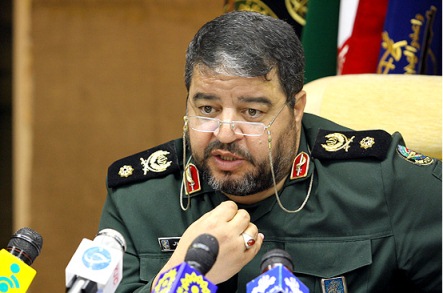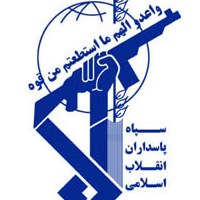![]()
Sun, March 20, 2011 | The Meir Amit Intelligence and Terrorism Information Center
Iran Calls on Islamic Hackers to Enlist to the Iranian “Cyber War”
Last week, Gholam-Reza Jalali, the head of the Passive Resistance Organization, announced the coming establishment of the Cyber War Headquarters of the Islamic Republic to act against Iran’s enemies in the cyber field under the Passive Resistance Organization.
Bultannews, a website affiliated with the Iranian Ministry of Intelligence, reported that, at a press conference held during the second conference of the Passive Resistance Organization, Jalali called on “good-intentioned, revolutionary” hackers to help advance the objectives of the Islamic republic. Jalali also warned that the Iranian authorities monitor the activities of hackers seeking to harm Iran’s citizens, and intend to take action against them.
Speaking about the cyber activities of Iran’s enemies, Jalali said that up to the riots that broke out following the presidential election in the summer of 2009, some senior Iranian officials had ignored the warnings about the cyber threats facing Iran and did not agree with the assessments on the potential significance of cyber warfare in the battle waged by Iran’s enemies on it. Last year’s events, however, have clearly proven that the world is currently focused on the cyber war, as indicated by the establishment of the cyber commands in the U.S. and Germany in the past year.
Jalali further stated that last year’s events have led to an increased awareness of cyber warfare in Iran. According to Jalali, this was reflected, for example, in dealing with the Stuxnet computer worm, which brought about increased coordination and cooperation in cyber warfare between Iran’s various security and intelligence apparatuses, including the Passive Resistance Organization and the Ministry of Intelligence. He added that all the relevant agencies in Iran, including security elements, internal security forces, and the judiciary, are now taking the necessary steps to increase the safety of Iran’s computer systems (Gerdab, March 7).
In another statement on cyber warfare, Ali Fazli, the acting chief of the Basij militia, admitted this week that hackers working for the Basij attack websites used by “Iran’s enemies”. Speaking about the activities of the Basij to counter the cyber threats facing Iran, Fazli said that the Basij takes measures in various areas to deal with the “soft war” waged by the enemies of Iran and protect state security. He noted that the Basij Technology and Information Department is working in the field of cyber warfare, and that without the capabilities of the Basij members Iran would be unable to seriously contend with its enemies. He added that defense without offense is meaningless, and that the meaning of successful defense is offense based on thought and planning. Fazli noted that the Cyber Army working for the Basij has members who are lecturers, students, and religion students, and also includes women (Mehr, March 13).
In the past two years, the Iranian Cyber Army has claimed responsibility for attacking a number of websites used by reformist opposition activists, including the Twitter website; the website of Radio Zamaneh, a radio station based in the Netherlands and affiliated with the opposition; the website of the reformist student union of Amirkabir University of Technology in Tehran; and Jaras, a website affiliated with the supporters of opposition leader Mir-Hossein Mousavi. On every hacked website, the hackers left political messages against the protest movement and the West and in favor of the regime. In late February, Iranian websites reported that several dozen websites associated with the U.S. State Department and PR apparatus, mainly the Voice of America website, were attacked by the Iranian Cyber Army in protest of the support shown by Western media for the resumption of the reformist opposition’s demonstrations in Iran, and in response to the attacks on several Iranian websites used by government institutions and media affiliated with the conservative bloc.
Meanwhile, a top Iranian military official announced last weekend that the U.S. is exposed to Iranian cyber attacks. At a meeting with politics and economy experts in Tehran, Mas’oud Jazayeri, Deputy Chief of Staff for culture and defense publicity, said that the Americans’ failures to protect their vital facilities show that they are unable to successfully deal with the weak spots of their vital and strategic infrastructure. Jazayeri noted that following the cyber attack on the U.S. power grid in 2006, the Americans came to the realization that it was necessary to improve the protection of their strategic facilities against cyber attacks. Nevertheless, America’s sensitive facilities are still vulnerable, according to Jazayeri, to a cyber attack due to the security shortcomings of its computer systems, and the U.S. is therefore concerned over Iran’s capabilities to react in case it comes under a cyber attack (Fars, March 9).



 RSS
RSS











#Iran Calls on Islamic Hackers to Enlist to the Iranian “Cyber War” | http://j.mp/fSkYrz
Gb SIMI: Iran Calls on Islamic Hackers to Enlist to the Iranian “Cyber War …: Fazli noted that the Cyber Army … http://bit.ly/ezWUQk
RT @CrethiPlethi: #Iran Calls on Islamic Hackers to Enlist to the Iranian “Cyber War” | http://j.mp/fSkYrz
Iran responds to Stuxnet attack with open call for hackers; amassing cyber #contagion http://t.co/lC3cgPpK
#twitter Iran responds to Stuxnet attack with open call for hackers; amassing cyber #contagion http://t.co/lty2N4sS http://t.co/wX7qZbff
Iran responds to Stuxnet attack with open call for hackers; amassing cyber army #contagion http://t.co/lC3cgPpK